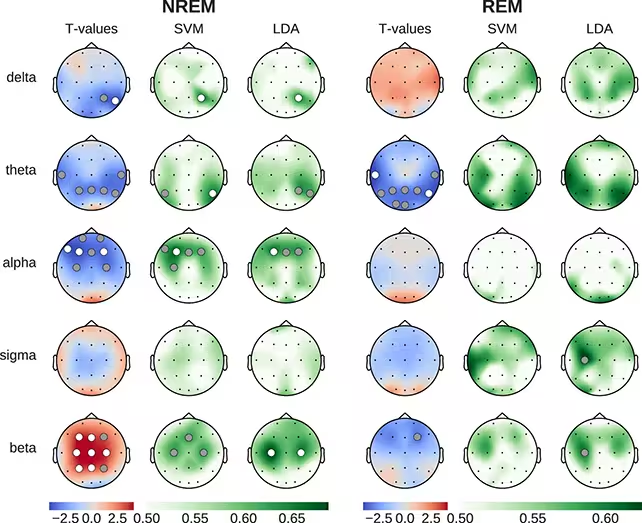4 Minutes
Caffeine is one of the world's most consumed psychoactive substances, found in coffee, tea, soft drinks, energy drinks, chocolate, and various medications. Its reputation as a daytime stimulant is well-known—but new scientific insights reveal that its impact on the brain goes well beyond keeping us awake. Recent findings suggest that caffeine actually modifies brain activity patterns during sleep, with potential consequences for sleep quality and memory consolidation.
Understanding Caffeine's Mechanism: More Than a Simple Stimulant
Caffeine works primarily by blocking adenosine receptors in the brain. Adenosine is a molecule that accumulates throughout the day and promotes sleepiness by evening. By interfering with adenosine, caffeine temporarily reduces the sensation of fatigue and increases alertness. This is why many rely on caffeinated beverages to jump-start their mornings or overcome afternoon slumps.
However, researchers led by the University of Montreal have explored what happens when caffeine lingers in the system at bedtime. Their study shows that caffeine doesn’t just delay sleep onset; it actively transforms the brain's electrical signaling during rest.
Key Scientific Findings: Caffeine Increases Brain Signal Complexity During Sleep
In a controlled experiment, 40 adult volunteers underwent sleep studies on two different nights. Each participant received a placebo on one night and a capsule containing 200 milligrams of caffeine—the equivalent of one or two cups of coffee—on the other. Brain activity was continuously monitored using electroencephalograms (EEGs), allowing researchers to analyze neurological patterns with high precision.
The study revealed that caffeine, even when consumed hours before bedtime, increased the complexity of brain signals during sleep—moving the brain closer to a state scientists call 'criticality.' This criticality describes an optimal balance between rigid structure and flexible function, which is ideal for processing information and cognitive adaptability during waking hours. But during sleep, this heightened complexity may be counterproductive.

Disruption of Restorative Sleep Waves
Caffeine intake was found to suppress the power of slow brain wave oscillations—specifically the delta, theta, and alpha waves. These slow waves are hallmarks of deep, restorative non-rapid eye movement (NREM) sleep, a period crucial for memory consolidation, cognitive regeneration, and overall mental health. Neuroscientist Karim Jerbi from the University of Montreal noted, "These changes suggest that even during sleep, the brain remains in a more activated, less restorative state under the influence of caffeine." This could explain why caffeine consumption reduces the efficiency of the brain's overnight recovery mechanisms, potentially impacting memory and learning processes.
Who Is Most Vulnerable? Age-Related Sensitivity to Caffeine
The study highlighted that younger adults (ages 20-27) exhibited more pronounced changes in brain activity after caffeine intake compared to older participants. A possible explanation is the age-related density of adenosine receptors—these are more abundant in younger brains, making them more susceptible to both the alertness-boosting and sleep-disrupting effects of caffeine. Julie Carrier, a senior neuroscientist involved in the research, commented: "While a heightened state of brain excitation aids concentration during the day, at night it prevents proper relaxation and recovery."
These insights are relevant in a world where caffeine consumption is a part of daily life across all age groups and cultures. Understanding the age-dependent effects of caffeine on the sleeping brain could influence future recommendations for caffeine use, especially among younger populations and individuals struggling with sleep disorders.
Broader Impact and Future Perspectives
Given caffeine's ubiquity in modern diets, these findings have important implications for public health, cognitive neuroscience, and sleep medicine. The results encourage further research into how chronic caffeine use might affect long-term cognitive and neurological health, especially as brain circuitry evolves with age. Moreover, these studies may drive innovation in sleep disorder therapies and inform guidelines for safe caffeine consumption.
Conclusion
In summary, caffeine's effects extend well beyond simply delaying sleep. It increases brain signal complexity and inhibits the generation of deep sleep waves, keeping the brain in a more active and less restorative state throughout the night. This effect is especially pronounced in younger adults, likely due to differences in brain biochemistry as we age. As people of all ages continue to rely on caffeine for energy, understanding its nocturnal impacts is vital for maintaining cognitive health and optimizing sleep quality. Scientific research continues to shed light on the delicate interplay between everyday stimulants and the intricate processes that govern our brains while we sleep.
Source: doi



Comments